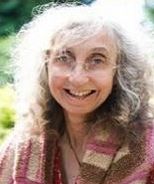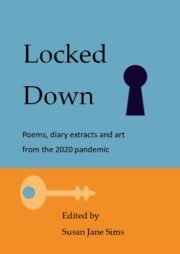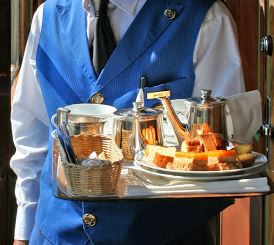Poetry Space Competition 2014 – FULL RESULTS
Poetry Space Competition closed this year (its fifth) with 223 entries and these included submissions from across the UK and Ireland, South Africa, Canada, Australia, USA, France and Greece.
The winning poems were selected by Alison Brackenbury who has provided a detailed report on her choices. (scroll down for this). We really appreciate Alison doing this. She did a fabulous job and in the sweltering summer heat as you’ll see from her report…
I would like to say a sincere thank you to everyone who entered and warm congratulations to the winners, the highly commended poets and the runners up. Twenty poems in all from nineteen poets will feature in the new anthology. For want of a better title I have decided to call this For want of a better word, the title of Glen Wilson’s winning poem.
Thanks are due too, to Johanna Boal who did a sterling job promoting the competition for Poetry Space and the growing number of friends of poetry space who handed out flyers and told their friends.
The top three winners are:
1st: Glen Wilson – For Want of a better word
2nd: Robin Muers – He’s settled in quite well
3rd: Angie Butler ‘Son, you’re 42′
Seven highly commended poems:
Margaret Eddershaw: Scattering
Martin Fuller: Bullet Points
Claire Williamson: She thought her father was a butcher
Patrick Lodge: C’an Freixa
Susan Latimer: Tea Time Truce
Kay Cotton: The Mason
Gail Dendy: The edge of the world
Ten more for publication:
Di Coffey: Hands
Susan Jordan: Uncle Ruby
Derek Stanley: Out Patience
Jo Waterworth: Widdershins
Roger Caldwell: Going to Coventry
David Lukens: A Circular Life
Anthony Watts: The Bright Room
Denni Turp: Can You Hear Me? Are You Still There?
Ama Bolton: Unfairy Tale
Ama Bolton: Brown Sugar
————————————————————————————————————————————————————–
Glen Wilson, the winner of Poetry Space Competition had this to say:
I was thrilled when I got the phone call to say that I had won the Poetry Space Competition. It is always great to hear that your work has been enjoyed by another and judged worthy of winning a prize (my first!) as well has made it incredibly encouraging. I am also looking forward to seeing the anthology come out in the future as well. Thanks Poetry Space!
For want of a better word
I wrote only one note today;
it said remember to pick up some milk.
The Smiths always forget the milk.
They hold then use me roughly,
though I suppose I can’t complain
I do have regular employment.
I don’t work for a calligrapher, dancing
elegantly on certificates or a screenwriter
creating Oscar winning scripts.
Those pens have their own velvet homes
while I have been known to be abandoned
in untold places like a common pencil,
wedged behind his wax leaking ear,
my end chewed by her cherry
red lips as she looks at the crossword.
I remember the year spent lost
down the back of the sofa, ink tears
staining loose change and dust.
Eventually they found me again
as Mrs Smith scribbled a phone number down
and smiling handed it to the milkman.
Later I watch Mr Smith pick up another pen
(a biro!) scribble out a letter and leave
it on the bedside table.
All I can see from the dresser are the words
trust and goodbye. She cries as she reads
these words and all the words between.
I hope that someday she might use me
to pour out her thoughts, because every pen
wants to leave an epigram before it dries.
Glen Wilson
Glen Wilson lives in Portadown, Co Armagh with his wife Rhonda and children Sian and Cain. He works as a Civil Servant in Belfast in Statistics and Research.
Glen was part of the Millennium Court Arts Centre Writing group in Portadown for 5 years. His work has been published in Black Mountain Review, Iota, A New Ulster and The Interpreters House. In 2007 He was short listed for the Strokestown Poetry Festival’s Satire Prize. His influences include Leonard Cohen, Seamus Heaney, George Szirtes, Pablo Neruda, and his Christian faith.
He is currently working on his first collection of poetry.
—————————————————————————————————————————————————————
When told of his prize Robin Muers had this to say:
Really pleased, especially so because this particular poem had been through very many previous versions and major alterations.
He’s settled-in quite well,
they’d like to think. Today requires
a sun hat, wise ones say. I’m placed
beside a healthy drink, then left
to find my own excitement, like:
a crocodile stalks the patio table,
grabs a wine glass in its teeth.
(My finger’s arthritically bent
to make the light for croc’s bright eye.)
Let’s have some other guests! A bunch
of terracotta frogs in Afro wigs
– seductive scent deployed! (Official
description: pots of petunia.)
Why these games? Because it’s far
too ‘sensible’ in here: the hand brake
must be ‘on’ both sides of chairs
– all that. I’ve had enough. But look:
above our Silver-Safe Community
a gang of swifts tears round the sky.
They’re calling me to pass the ball
through fading light. I leave with them.
Robin Muers
Robin Muers studied history at university and subsequently qualified as a solicitor. He worked in various jobs in local government and the public sector before retiring some years ago. Although always interested in contemporary poetry, he did not make many attempts to write his own until the current century was well under way. If he wants a poetry book to take on a train journey, a John Burnside collection is most likely to be picked off the shelf. Robin enters a number of poetry competitions – partly because that gives an incentive to ‘finish and polish’.
——————————————————————————————————————————————————————
Angie Butler had this to say:
Finding Poetryspace has made a huge difference to my life.
The daily time to write for the Photo and Poetry Competition allowed me to voice every emotion and to fend off depression and access acceptance and healing.
I would write and rewrite my emotions. I would have hope that my voice might be heard by an uninvolved stranger. I was inspired to run a competition for other writers to feel the comfort and joy I myself had received.
Son, you’re 42
The chocolate licked off.
The conquest done.
Now on to another.
A different one.
To woo, to ravage.
To make my own.
Then leave.
Go home.
Go home alone.
Angie Butler
Angie Butler is a teacher who has always written. Published in several books and magazines, she has researched Land Girls in WW2 and created books and cards to support her work A founder member of The Penzance Literary Festival, she holds workshops for all ages and abilities. Her story ‘Bodelva’ was performed by the Bournmouth Symphony Orchestra and 600 children, celebrating the 10thanniversary of The Eden Project inCornwall. She was honoured as Citizen of the Year 2012 and Cornish Woman of the Year 2014 in Penzance, for her help in community projects.
—————————————————————————————————————————————————————
Copyright of all poems printed here remains with their authors – please don’t reproduce without permission.
————————————————————————————————————————————————————-
Honestly’…
Competition Report for the Poetry Space Competition, 2014
Poems must be convincing. I do not believe that they always need to be honest. But I think that an account of judging them should be. It is possible to develop rather grand theories about judging poetry. (I have one or two myself!) But here is an honest account of how my chosen twenty poems shook themselves free from the invitingly fat pile of entries for the Poetry Space Competition, in the summer of 2014.
Throughout a couple of blazing weeks in July, sustained by blinds, choc ices, and two supportive cats, I read all of the poems, several times. I pored over my ‘Yes’, ‘No’, and ‘Maybe?’ files repeatedly. But the poems which first captivated, and moved me the most, continued to do so. My affection for them did not waver with the blinds, or melt with the ice cream.
What did I most admire, about this competition’s three (very varied) prizewinners? All of these poems had depth. Glen Wilson’s winning poem, ‘For want of a better word’, has a story which enthralled me. I will not reveal its twists! After clever flirtations with humour and cliché, this poem swiftly turns into an account of love, with an ending of real pathos.
Many poems in competitions tackle the subject of age. But the winner of the second prize, Robin Muers’s ‘He’s settled in quite well,’ is one of the best and most surprising I have ever read on this theme. Its speaker, ‘placed […] then left’ in a wheelchair, is mentally as quick as the swifts in the summer skies above him.
It takes courage to enter a very short poem for a competition. I am delighted that Angie Butler did so. ‘Son, you’re 42!’, the third prizewinner, has only nine lines. But it places the weight of a whole lifetime’s mistakes behind its closing rhyme.
Was it difficult to thin out the remaining pile into seven Highly Commended, and ten poems for the competition anthology? Honestly, yes. Many poems were re-read, then put back with a sigh.
I felt that all the Commended poems had exceptional force, in very different ways. Margaret Eddershaw’s ‘Scattering’ arrested me by its final line. Martin Fuller’s ‘Bullet Points’ was both absorbing and surprising. Physical vividness and emotional mystery marked Claire Williamson’s ‘She thought her father was a butcher’. ‘C’an Freixa’, by Patrick Lodge, achieved descriptions of irresistible beauty. I found ‘Tea Time Truce’, by Susan Latimer, uncompromisingly moving. Kay Cotton’s ‘The mason’ carefully deepened into primitive power. ‘The edge of the world’, by Gail Dendy, set the whole force of its length behind a bravely expansive ending.
From my selection of poems for the anthology, I admire the haunting scents of Di Coffey’s poem ‘Hands’, and the often disturbing detail of Susan Jordan’s ‘Uncle Ruby’. I think many readers will recognise the quiet rhythmic truth of Derek Stanley’s ‘Out Patience’, and the child-like sensuality of Jo Waterworth’s ‘Widdershins’. I am haunted by the unfolding sadness of Roger Caldwell’s ‘Going to Coventry’, shocked and impressed by the tough heroine of David Lukens’ ‘A circular life’. Virtual life is vivid in Anthony Watts’ The Bright Room’; an intricate music in Denni Turp’s sestina, ‘Can You Hear Me? Are You Still There?’ Finally, I greatly relished the crisp couplets of ‘Unfairy Tale’, and the deft humour of ‘Brown Sugar’. The judging was, of course, completely anonymous. When I learnt that both poems were by Ama Bolton, I still felt that these two skilful poems deserved their placing on their own, very different merits.
Why did some poems not escape from my ‘Maybe?’ folder. There were poems, excellent in parts, which showed flaws which I often see in my own writing. Some poems started strongly, then tailed off. Others had arresting diction, yet a lack of rhythmic lift, like a beautiful skin with no muscles to make it move. But there were many poems which did work well, and which I would very much have liked to smuggle into my ‘Yes!’ folder.
I have had the privilege of judging many competitions, both national and local. I think that Poetry Space is one of the most generous I have encountered. Many contests have only a few winning poems, which do not appear in print. Poetry Space has ten winners, including the Highly Commended, and publishes twenty of its entries. Statistically, you have an exceptionally good chance of being rewarded for entering this competition!
The standard of entries was high this year, and a significant number of the unplaced poems might well have been favoured by a different judge. (Poetry judging is not an exact science.) So, to all who entered, my thanks for letting me read your varied and thought-provoking poems. And please do enter again. Honestly,
2015 could be the year you win the Poetry Space Competition!
Alison Brackenbury
The top three will receive prizes of £250, £100 and £50 respectively and complimentary copies of the anthology.
Twenty poems in all will be published in the prizewinner’s anthology.










